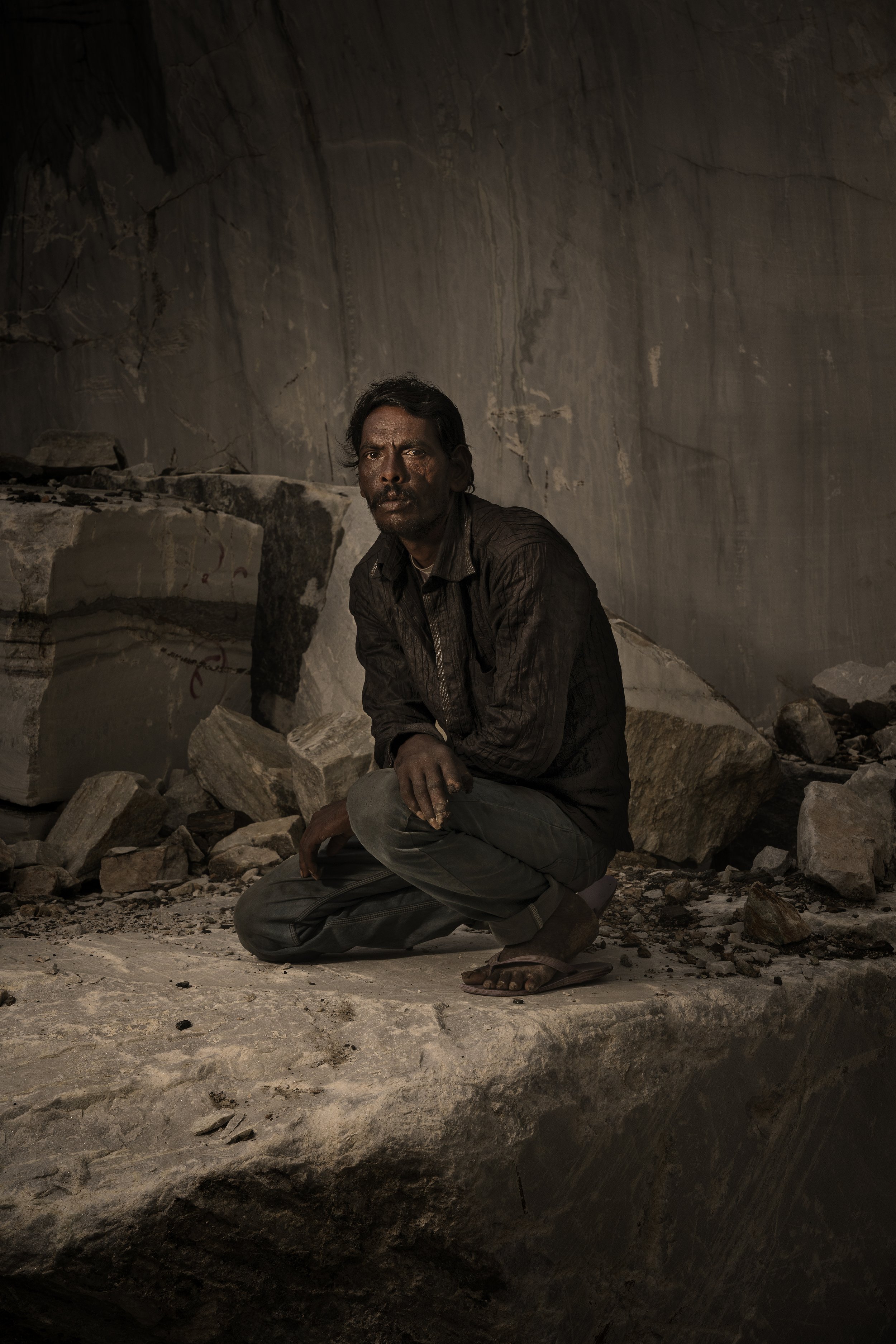Isabeau De Rouffignac
FRANCE
Instagram @isabeau_de_rouffignac
Isabeau de Rouffignac captures distant or intimate realms, guided by a consistent approach that weaves a thread of coherence throughout their body of work. Their ethos revolves around connecting with others, bridging the gap, investing time, embracing unfamiliar languages, and ultimately fading into the background. Their gaze remains forever curious, rooted in empathy.
As the artist delves deeper into their artistic practice, a documentary perspective gradually emerges, accompanied by an inherent aesthetic and plasticity. Blending these diverse approaches to their subjects, they transcend prescribed categories such as documentary or visual photography, forging a distinctive language that imparts a message, be it environmental, social, humanitarian, or political. Such is the essence of their latest endeavor in Rajasthan, India—an exploration of the world of marble workers that raises thought-provoking questions.
• SERIES •
Marble at any price
Marble at any price
India is one of the largest exporters of marble in the world. In Rajasthan, open-air quarries stretch as far as the eye can see, creating gigantic staircases in the arid landscape where men and machines work. In recent years, the demand for marble has only increased, making working conditions more and more difficult and dangerous. In this series, I question the world of marble workers in their workplace, through landscapes, portraits, details. The miners are dressed in their daily clothes bleached by the marble dust that is embedded everywhere. Often, they wear only sandals. They should wear helmets, gloves and protective shoes, but it is hot and, above all, this safety equipment is rarely provided or their wearing is not mandatory. Half of the jobs in Rajasthan are provided by the marble industry. Its presence underground has led to the disappearance of a significant part of agriculture. Its exploitation dries up the land and one has to make a living from something. Some people work there, like their parents before them. How can you change your life when you can't read or write and you don't know your own rights? So you work from day to day. Before mining marble, some of them were farmers and owners of their land. Uninformed of its real value, they often sold it at a low price and found themselves working for the one who acquired it in this way. Working conditions are such that many suffer from dehydration, poorly treated wounds and hearing problems. Above all, respiratory pathologies are very frequent, including the very dangerous silicosis caused by the inhalation of silica dust particles that destroy the lungs. It cannot be cured. In 2016, a study estimated that one out of every two marble miners would suffer from silicosis or silico-tuberculosis. This represents more than 800,000 people. The state has put in place measures to improve working conditions and prevent health risks, but they generally remain a dead letter.





